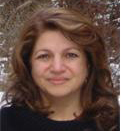Abstract: To enhance business opportunities, organizations involved in many service industries are
increasingly active in pursuit of both on-line provision of their business services and collaborating with
others. Collaborative networks of organizations in service industry sector, however, face many challenges
when it comes to sharing and especially integration of their shared business services, and corresponding
software services. Catering to the need for a service interoperability framework has therefore gained
momentum in research for supporting Virtual Organizations (VOs). Central to such a framework, is the
requirement to support generation of formal machine-readable specification for shared business processes.
Such business process specifications provide the unambiguous definitions needed for developing their
counterpart software services.
A main contribution of our research involves providing concise representations for functional behavior
of services, as well as applying user specified/desired service behavior for the purpose of automated
matchmaking/selection of existing services in the VO breeding environment (VBE). Our proposed
framework provides both a model and an implementation architecture for provision and discovery, as
well as for composition of shared services. As such, it supports semi-automated development of integrated
value-added services in VOs. Automated selection of most suitable service(s) incorporates service quality a
spects. Service integration/composition approach applies the VO business service model, further to deploying
Reo circuits and ECT tools to define complex interaction protocols and coordination among business processes
that are provided by different organizations.
 Prof. Dr. Hamideh Afsarmanesh received her PhD from the university of Southern
Prof. Dr. Hamideh Afsarmanesh received her PhD from the university of Southern
California (USC) in Computer Science in 1985. She joined the Informatics Institute and the faculty of Computer
Scienceat the University of Amsterdam in 1990, where she heads the Federated Collaborative Networks (FCN)
research group. Her research spans over reference modeling, and development of theories, methods, and tools to
support many aspects of collaborative networked organizations. Her more recent research focuses on trust
management, information interoperation, software service integration, and modeling and assessment of agents
and their behavior in collaborative networks. She has organized and served as the program chairperson at
IFIP/IEEE International conferences focused on Virtual organizations. She has directed research in more than
20 National, European, and International externally-funded R&D projects. She is theco-author / co-editor of
more than 15 books and has more than 250 publications. She is a founding member of the PRO-VE series of
international conferences, is an executive committee member of the IFIP TC5, has chaired the working group
WG5.5 within the TC5, is a member of IEEE Technical Committee on Industrial Agents, has served
(2011-2013) as an advisory member of the Board on Global Science and Technology (BGST) of the United States
National Academy of Science, is an editor in chief for the Amsterdam Science (AmSci) magazine (a publication of
the University of Amsterdam) since its foundation in 2015, and has been the elected chair of the General Assembly
of the SOCOLNET international association since 2006.


